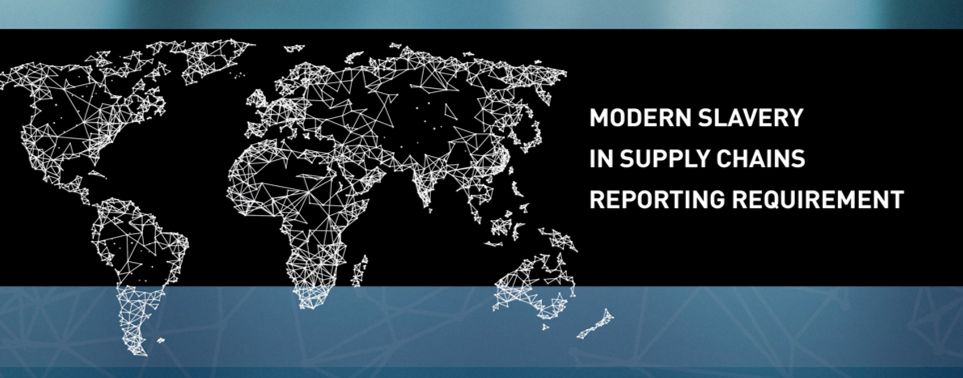
Business & Human Rights, News
Key trends in business and human rights for 2016: What business needs to know
UN Global Compact Network Australia | February 12, 2016
On 11 February 2016, the GCNA was delighted to provide an opportunity for members and other interested stakeholders to hear Professor John Ruggie, author of the UN Guiding Principles on Business and Human Rights (UNGPs), alongside other key Australian and global experts, discuss key trends for business and human rights for 2016.
Vanessa Zimmerman, Chair of the GCNA’s Human Rights Leadership Group, interviewed Professor Ruggie and then facilitated a conversation with Ben Walker (ANZ), Bill Anderson (Adidas) and Ariel Meyerstein (US Council for International Business). The discussion explored predictions of focus areas for 2016 including new themes, continuing challenges and what the developing landscape means for businesses operating both in Australia and offshore.
- Expectations around human rights communications / transparency will continue increasing
2015 was a big year for human rights communication: the UK Modern Slavery Act came into effect, mandating supply chain transparency; the UNGPs Reporting Framework was launched helping to facilitate companies to report against the UNGPs; the Corporate Human Rights Benchmark initiative was announced to compare companies’ human rights policies and practice; and stakeholder expectations (including investors) on this front continued to build.
All in all, companies need to get more comfortable talking about human rights in formal and informal communications. If they do not provide the information expected by stakeholders, not only will other voices fill the void, but companies are likely to face growing criticism and will not perform well in benchmarking initiatives against more transparent peers.
“The idea that the community at large and stakeholders have the right to know and companies have to show respect for human rights is gaining ground everywhere.” (Professor John Ruggie)
- Momentum around National Action Plans is building, including in Australia
To date, ten countries have launched National Action Plans on business and human rights (NAPs) and 26 others are in the process of developing one. There is growing pressure on the Australian Government to do the same: it was raised by some other governments at Australia’s most recent Universal Periodic Review on human rights, and was the subject of a recent letter to the Australian Government from a coalition of NGOs.
A NAP could assist Australian companies in a variety of ways, including by clarifying government expectations and opportunities for engagement, building policy coherence amongst government departments which in turn could better support business at home and abroad to manage human rights risk, providing incentives for those doing the right thing and lifting the floor for laggard companies.
“The business community needs to have a clear sense of what government expectations are with regard to business and human rights, and corporate responsibility more generally. NAPs are a vehicle for the expression of those expectations that business needs and desires” (Professor John Ruggie)
Further, the process of developing a NAP would itself be valuable, bringing together different stakeholder groups to explore challenges and opportunities.
“The process of developing NAPs in some respects is as important as the product.” (Professor John Ruggie)
The GCNA will shortly be convening NAP roundtables for business and is also working with other stakeholder groups to make sure NAP efforts are aligned.
- Managing human rights risks in business relationships will continue to be a hot topic – e.g. supply chains, government dealings, M&A / JVs
There is mounting pressure on businesses to ensure that they address and are transparent about not only adverse human rights impacts which they cause themselves, but impacts that they contribute to or are directly linked to through supply chains and other business relationships. This includes domestic supply chain issues for Australian businesses, such as labour rights, which have received significant attention in recent months. Human rights due diligence, including understanding which suppliers may not be respecting human rights should encompass domestic as well as offshore risks.
“The questions to be asking are ‘what are your most salient risks?’ and ‘where are your most salient risks?’, irrespective of levels or tiers in the supply chain. Then you can prioritise.” (Professor John Ruggie)
Collaborative efforts between business, government and civil society to address issues such as human trafficking in supply chains will continue to build.
- The human rights aspects of other issues will be increasingly highlighted – e.g. climate change, water, sustainable development / SDGs, security, privacy, taxation
We are starting to see the human rights aspects of other sustainability issues being highlighted, such as environmental issues, privacy, taxation and sustainable development more generally. This indicates a growing expectation from stakeholders that business understands and mitigates any adverse human rights impacts of their broader social and environmental policy positions and activities.
In relation to the Sustainable Development Goals, business is being specifically called upon to contribute. Addressing any actual or potential human rights impacts in existing business activities will itself make a significant contribution. In addition, ensuring any additional efforts to advance the SDGs should be underpinned by respect for human rights. Put simply you cannot offset adverse human rights impacts with positive work helping communities to realise the SDGs.
“The key role [of the UNGPs] is as an accountability standard for the broader development agenda.” (Professor John Ruggie)
- There will be a greater focus on remedy
Stakeholders, especially civil society, have long raised issues with the ability for victims to access effective remedies for businesses’ negative human rights impacts, and there is growing international momentum to address barriers to access to remedy. 2016 will see the final report released from the Office for the High Commissioner for Human Rights’ Accountability and Remedy Project – which included Australia as a jurisdiction of focus.
With this growing focus on remedy, there will be increasing pressure on businesses to provide effective grievance mechanisms.
“The idea that there are certain kinds of grievances that can be handled directly at local levels before they escalate into major campaigns is taking root.” (Professor John Ruggie)
There are also likely to be increasing calls on governments to ensure the availability of effective domestic law remedies for business-related human rights impacts even if they occurred overseas.
We may also see potentially greater use by stakeholders of the Australian OECD National Contact Point in relation to human rights issues, based on the OECD Guidelines for Multinational Enterprises, as well as complaints mechanisms attached to international financial institutions. 2016 will also see further work by the UN around a potential business and human rights treaty.
GCNA Members can contact us to access a recording of the webinar.


